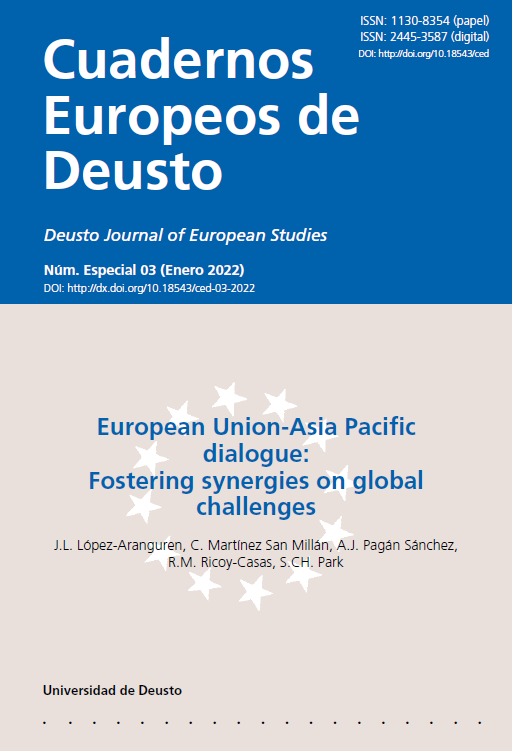The roles and strategies of ASEAN in the Belt and Road Initiative (BRI)
Abstract
Under the Belt and Road Initiative (BRI), China focuses on the ASEAN as part of land bridge connecting China to Southeast Asia, the Indian Ocean, and the China-Indochina Peninsula Corridor sea route that is the comprehensive sea route between China, South China Sea, Indian Ocean, and Europe. On the other hand, ASEAN member nations regard the BRI as an avenue to improve connectivity with their poor infrastructure development which will generate trade and investment increase in the region particularly through improved logistics. Accordingly, ASEAN member nations are keen to develop their infrastructure projects in collaboration with Chinese companies and funding agencies mainly in the forms of joint venture. The Asian Development Bank (ADB) estimates that the total infrastructure investment needs in the ASEAN from 2016 to 2030 will be between USD 2.8 trillion with baseline estimate to USD 3.1 trillion with climate adjusted estimate. This paper aims to argue how China and the ASEAN can be interacted by the BRI and what are impacts of the BRI on the region. Furthermore, it analyzes which roles do the BRI play in building the region between China and the ASEAN member nations. Last, but not least, it also focuses on Chinese national strategy how to implement the BRI in the region.
Received: 25 August 2021
Accepted: 18 November 2021
Downloads
The author grants to the Publisher the distribution, public communication, and reproduction rights of her/his work subject of publication in Deusto Journal of European Studies (DJES), whichever the media may be, including the permission to include it in the databases where this Journal is indexed and in the institutional repository of the Universidad de Deusto.
Upon its publication, the content of any Issue of Deusto Journal of European Studies (DJES) can be accessed, read, downloaded, copies, and distributed freely for non-commercial purposes and in accordance with any applicable copyright legislation.
The content of Deusto Journal of European Studies (DJES) can be subsequently published in other media or journals, as long as the author clearly indicates in the first footnote that the work was published in Deusto Journal of European Studies (DJES) for the first time, indicating the Issue number, year, pages, and DOI (if applicable). Any other use of its content in any medium or format, now known or developed in the future, requires prior written permission of the copyright holder.
The content of the work published in Deusto Journal of European Studies (DJES) is each author's sole responsibility. The authors assume the responsibility of obtaining all the necessary licenses for the reproduction in their manuscripts of any text, material or illustration coming from another author, institution or publication. The liabilities that may arise from complaints for publishing plagiarised articles are the sole responsibility of the author.


3.jpg)
2.jpg)
2.jpg)
2.jpg)
2.jpg)
2.jpg)







